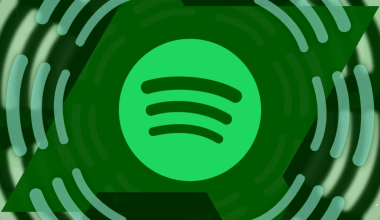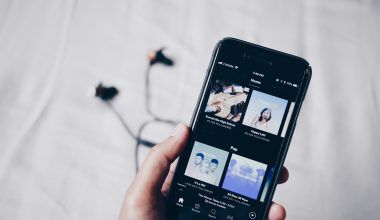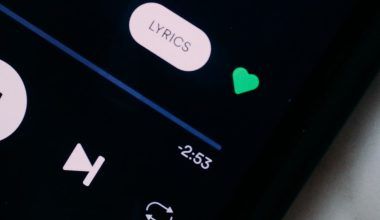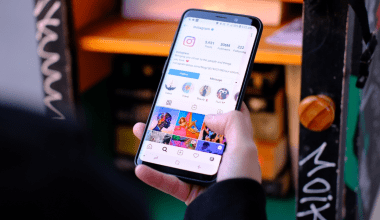Music during pandemics is the language of the soul, and it does not only lie in words but rhythm and tune. It is universal-having no religion and boundaries as it feeds the soul with hope and positivity. The world has witnessed a topsy-turvy circumstance due to the ongoing pandemic. Its after-effects demand harmony in each of our lives. Music is a medium to bring back the equilibrium in one’s life. It can change a mood and create an ambiance to add hope to helpless souls. It lifts one’s heart and warms the soul, and makes one feel better.
However, in this modern world, do you not think-when words fail, music speaks? Although we use multiple apps, devices to create a well-connected world, yet the connection is lacking. Why? So, in this world of high-tech connectivity, how does your voice reach the vast universe? Let’s try to have an answer to all these questions.
Music During Pandemics Became a Part of Therapy
In the expansive field of research, music during pandemics has been gaining immense importance for various therapies. The recently observed influence of music on mind and body has stirred researchers. Music is responsible for creating a world of emotions that releases the pent-up tension of the human mind and slows down the anxiety or heart rate. The adverse and VUCA (volatile, uncertain, complex, and ambiguous) society has witnessed home-schooling, the threat of unemployment, social distancing, aggravating depression even among the age group below 12.
During the pandemic, music during pandemics became a simple mode of expression. It also became the channel of conscious interaction between a singer and listener. The changing tune in music has been adapted to complement the mood of the listeners. It is a creative mode of expression in the new normal. The collaboration of songwriters, singers, and producers in a fresh manner is helping the ongoing flow of music creation. Numerous studies opine that music during pandemics has helped to maintain emotional and psychological challenges.
Music During Pandemics and Mental Health
The COVID-19 pandemic has significantly impacted mental health globally. With the constant fear of infection, the stress of lockdowns, and the anxiety of the unknown future, people’s mental health has taken a hit. This is where music during pandemics has played a crucial role. Listening to soothing music can lower stress hormones in the body, reduce the heart rate, and alleviate anxiety. Music during pandemics therapy has been used as a tool to help individuals cope with depression and anxiety, offering a sense of comfort and normalcy during these challenging times.
Music also helps in reducing the sense of isolation. Social distancing measures have limited physical interactions, causing feelings of loneliness and isolation. Engaging with music during pandemics, whether through listening, singing, or playing instruments, can create a sense of community and connection. Online concerts and virtual music sessions have brought people together, providing a platform for shared experiences and mutual support.
Music During Pandemics as a Medium of Expression and Creativity
The pandemic has also provided an opportunity for many individuals to explore their creative sides. With more time spent at home, people have turned to music during pandemics as a means of expression. Writing songs, learning to play an instrument, or simply singing along to favorite tunes has offered a productive outlet for emotions. Music during pandemics creation has surged, with many turning to digital platforms to share their work and connect with others.
For professional musicians, the pandemic has been a time of adaptation and innovation. Live performances were put on hold, but artists found new ways to reach their audiences. Virtual concerts, live-streamed performances, and online collaborations have become the new norm. These virtual platforms have not only kept the music industry alive but have also allowed artists to connect with their fans on a more personal level.
The Role of Music During Pandemics in Healing and Recovery
Music during pandemics has been a source of comfort and healing for many recovering from the virus. Patients in isolation have found solace in music, which has helped them cope with the fear and uncertainty of their condition. Hospitals have incorporated music therapy into their treatment plans, recognizing its benefits in reducing pain, stress, and improving overall well-being.
Music also plays a role in the recovery of frontline workers. Healthcare professionals, who have been under immense pressure, have turned to music during pandemics for relaxation and mental rejuvenation. Music therapy sessions have been organized to help them manage stress and maintain mental health, proving that music during pandemics is not just a form of entertainment but a vital component of emotional and psychological care.
The Economic Impact on Musicians and the Music Industry During Pandemics
The pandemic has had a severe economic impact on musicians and the music industry. Live performances, which are a significant source of income for many artists, were canceled. This sudden loss of revenue has forced musicians to seek alternative income streams. Digital platforms have become crucial, with artists using social media, streaming services, and virtual tip jars to sustain themselves.
Despite these challenges, the resilience and adaptability of the music community have shone through. Many artists have used this time to create new music, experiment with different genres, and collaborate with other musicians globally. The support from fans and the music community has been overwhelming, showcasing the unifying power of music during pandemics even in the most challenging times.
Deliver My Tune: Supporting Independent Musicians During Pandemics
After a year and more, when the world revives from the standstill, a musician might find it difficult to reach his audience. At this point, the artists have found various effective ways to find an audience. In this world of complexities, we support creating music. Not just creation, we help in getting paid and getting discovered pretty simply.
Deliver My Tune is India’s best platform to magnify newborn, talented musicians. We are here to boost your career in music and bring the audience closer to you through customized strategies and tools appropriate to your musical content.
We advertise your music on prominent music streaming apps like Spotify, JioSavn, Shazam, Google Play Music, and iTunes. Thus, creating an overall network to reach more listeners. This helps to connect various types of listeners and musicians. The whole music distribution process on Deliver My Tune is simply smooth. It starts with creating an account on our site. There are massive features to explore for the music creators. There are only a few steps to follow to reach your audience-create and account-upload the music checkout, and the rest will be looked after by us. We help to sell the music online through more than 100+ stores. Thus, aiding the listeners to scroll and get closer to the musicians.
Deliver My Tune encourages the new talented singers and artists to form their own identities in the online medium of music. Create your music and contact us to reach your audience.
Deliver My Tune aims to showcase the talent of independent musicians across the world. Thus, creating better exposure and ensuring one receives an identity among the worldwide listeners. So, why wait? Signup today!
Music During Pandemics as a Source of Hope and Resilience
Throughout history, music has been a source of hope and resilience during challenging times. The pandemic is no different. Inspirational and uplifting songs have become anthems of hope, reminding people that they are not alone. These songs have provided strength and encouragement, helping individuals persevere through the difficulties of the pandemic.
Communities have also used music to express solidarity and support for one another. Balcony concerts, where residents perform from their balconies for their neighbors, became a symbol of unity and resilience during lockdowns. These impromptu performances not only entertained but also brought communities closer together, highlighting the power of music during pandemics to foster connection and togetherness.
The Future of Music During Pandemics Post-Pandemic
As the world begins to recover from the pandemic, the future of music looks promising. The innovations and adaptations made during this time have paved the way for a more inclusive and accessible music industry. Virtual concerts and online platforms will continue to play a significant role, allowing artists to reach global audiences without the limitations of physical boundaries.
Music during pandemics will also remain an essential tool for healing and recovery. The lessons learned from the pandemic will shape how we use music to support mental health and well-being in the future. The therapeutic benefits of music will be further explored, leading to more comprehensive and integrative approaches in healthcare.
The music industry will emerge stronger, with a renewed appreciation for the artists and the power of music. The connections formed and the creativity unleashed during the pandemic will continue to inspire and shape the future of music.
Conclusion
The impact of music during pandemics has been profound. It has provided comfort, healing, and hope to millions of people worldwide. Music during pandemics has helped us navigate the emotional and psychological challenges of the pandemic, offering a sense of connection and community. The resilience and adaptability of the music industry have shown that music is not just a form of entertainment but a vital part of our lives.






